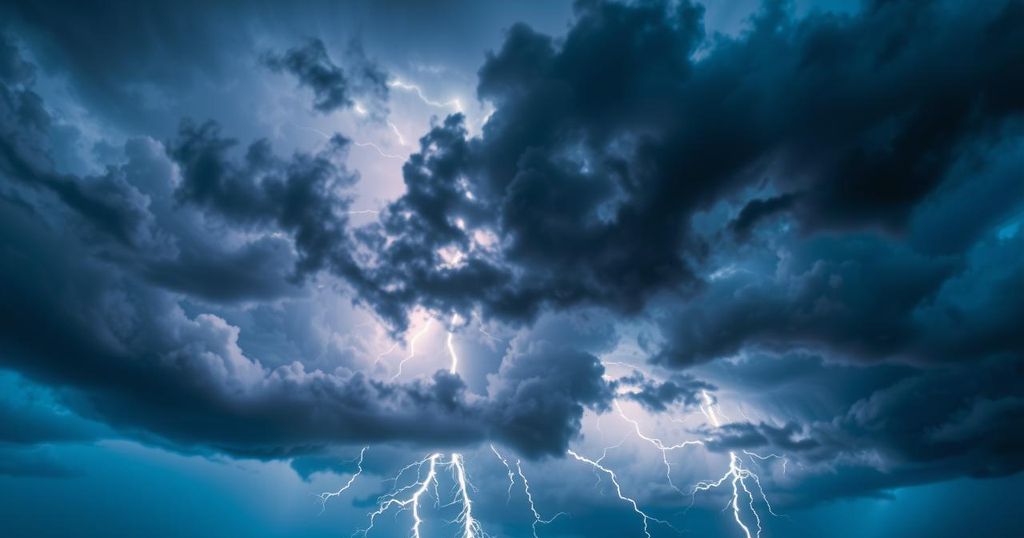Tropical Cyclone Chido Causes Widespread Damage in Southern Africa
Tropical Cyclone Chido made landfall in Mozambique, causing extensive damage with winds up to 80 km/h and heavy rains exceeding 250 mm. The cyclone severely impacted over 5,800 homes and left 2,500 families without power. Following Mozambique, Chido has advanced into Malawi, intensifying the need for residents to monitor weather updates from authorities as the storm continues to progress inland.
Tropical Cyclone Chido struck Mozambique on December 15, 2023, unleashing strong gusts of wind reaching 80 km/h, torrential rains exceeding 250 mm within 24 hours, and thunderstorms. The Southern African Development Community (SADC) reported significant destruction, with over 5,800 homes damaged, partial destruction of 41 classrooms, and downed power lines impacting approximately 2,500 families. Damage assessments are ongoing, suggesting that these numbers may rise as the situation is evaluated further.
Residents have faced severe challenges, including communication difficulties due to persistent power outages. A correspondent in Pemba remarked on the extremely strong winds and intermittent mobile connectivity, which has forced individuals to conserve battery power on their devices for critical communications. Furthermore, Chido previously wreaked havoc on Mayotte, where it came ashore as a Category 4 cyclone, causing widespread devastation and flattening entire neighborhoods.
Following its impact in Mozambique, Cyclone Chido has advanced into Malawi, maintaining its strength as a moderate tropical storm. The latest updates indicate that the cyclone has traversed southern Malawi, bringing heavy winds and rainfall, with amounts ranging from 100 to 150 mm. The cyclone is projected to re-enter Mozambique, passing through Tete Province and the northern regions of Sofala and Manica before moving toward Zimbabwe by December 17, 2023. Residents in these affected areas are urged to stay informed through their national meteorological services for safety updates on the evolving weather conditions.
Tropical cyclones, particularly in the Southern African region, can lead to catastrophic weather events, resulting in severe flooding, displacement of populations, and significant infrastructural damage. Cyclone Chido is a recent example of such a disaster, highlighting the vulnerability of countries like Mozambique, Malawi, and Zimbabwe to tropical storms and the necessity for ongoing disaster preparedness and response initiatives. The influences of climate change also contribute to the frequency and intensity of these cyclonic events, demanding a coordinated response across affected nations.
In summary, Tropical Cyclone Chido has produced extensive damage to Mozambique and Malawi, with impactful winds and rainfall leading to destruction of property and essential infrastructure. The continuous threat of Chido as it moves towards Zimbabwe underscores the urgent need for regional disaster preparedness. Communication breakdowns further complicate recovery efforts, illustrating a critical need for resilient infrastructure in cyclone-prone areas.
Original Source: www.vaticannews.va




Post Comment